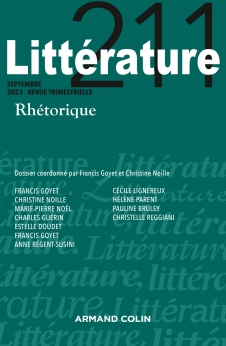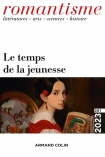
Littérature Nº211 (3/2023)
Pour acheter ce numéro, contactez-nous
Recevez les numéros de l'année en cours et accédez à l'intégralité des articles en ligne.
La rhétorique latine peut être abordée de deux manières, par le biais d’une approche interne (en se concentrant sur le fonctionnement et l’histoire de la doctrine) ou externe (en étudiant son inscription dans l’espace culturel et politique). En proposant une recension des travaux récents publiés dans le domaine des études anciennes, cet article aborde successivement (1) le rapport entre rhétorique et vie politique, (2) le regard réflexif des Romains sur leur propre pratique, (3) la portée pédagogique de la rhétorique et (4) la place de la déclamation dans le monde latin. Il souligne comment, en associant approche technique et historicisation, la recherche des vingt dernières années a permis de mieux comprendre les mécanismes qui ont présidé au passage d’une doctrine rhétorique latine à une culture rhétorique spécifiquement romaine.
Latin rhetoric can be approached in two ways: internally (by focusing on the functioning and history of the doctrine) or externally (by studying its inscription within the cultural and political space). Offering a review of recent works published in the field of Ancient studies, the article successively surveys (1) the relationship between rhetoric and political life, (2) the reflexive gaze of the Romans on their own practice, (3) the pedagogical scope of rhetoric and (4) the place of declamation in the Latin world. It also highlights how the research conducted over the last twenty years, through its combining of technical approach and historicization, has led to a better understanding of the mechanisms which have ruled over the transition from a Latin rhetorical doctrine to a specifically Roman rhetorical culture.

